BOXER\S split hoof was a long time in healing
But a few days later Muriel, reading over the SevenCommandments to herself, noticed that there was yet another ofthem which the animals had remembered wrong. They had thoughtthe Fifth Commandment was"No animal shall drink alcohol, butthere were two words that they had forgotten. Actually theCommandment read: "No animal shall drink alcohol to excess
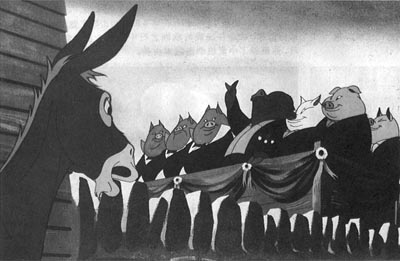
BOXER'S split hoof was a long time in healing. They had startedthe rebuilding of the windmill the day after the victory celebrationswere ended Boxer refused to take even a day off work, and made ita point of honour not to let it be seen that he was in pain. In thevenings he would admit privately to Clover that the hoof troubledhim a great deal. Clover treated the hoof with poultices of herbswhich she prepared by chewing them, and both she and Benjaminrged Boxer to work less hard. "A horse's lungs do not last forever. " she said to him. But Boxer would not listen. He had. he saidonly one real ambition left-to see the windmill well under waybefore he reached the age for retirementAt the beginning, when the laws of Animal Farm were firstormulated, the retiring age had been fixed for horses and pigs attwelve, for cows at fourteen, for dogs at nine, for sheep at seven,and for hens and geese at five. Liberal old-age pensions had beenagreed upon. As yet no animal had actually retired on pension, butof late the subject had been discussed more and more. Now that thesmall field beyond the orchard had been set aside for barley, it wasrumoured that a corner of the large pasture was to be fenced offand turned into a grazing-ground for superannuated animals. For ahorse, it was said, the pension would be five pounds of corn a dayand, in winter, fifteen pounds of hay, with a carrot or possibly anapple on public holidays. Boxer's twelfth birthday was due in thelate summer of the following year.Meanwhile life was hard. The winter was as cold as the last onehad been, and food was even shorter. Once again all rations wereeduced, except those of the pigs and the dogs. a too rigid equalityin rations, Squealer explained, would have been contrary to theprinciples of Animalism. In any case he had no difficulty inproving to the other animals that they were not in reality short offood, whatever the appearances might be. For the time beingcertainly, it had been found necessary to make a readjustment ofrations(Squealer always spoke of it as a"readjustment, never as areduction), but in comparison with the days of Jones, theimprovement was enormous. Reading out the figures in a shrill,rapid voice, he proved to them in detail that they had more oats,more hay, more turnips than they hadhad in Jones's day, that theyworked shorter hours, that their drinking water was of betterquality, that they lived longer, that a larger proportion of theiryoung ones survived infancy, and that they had more straw in theirstalls and suffered less from fleas. The animals believed everyword of it. Truth to tell. Jones and all he stood for had almost fadedout of their memories. They knew that life nowadays was harshand bare, that they were often hungry and often cold, and that theywere usually working when they were not asleep. But doubtless ithad been worse in the old days. They were glad to believe soBesides, in those days they had been slaves and now they were free,and that made all the difference, as squealer did not fail to pointout
There were many more mouths to feed now. In the autumn the foursows had all littered about simultaneously, producing thirty-oneyoung pigs between them. The young pigs were piebald, and asNapoleon was the only boar on the farm, it was possible to guess attheir parentage. It was announced that later, when bricks andtimber had been purchased, a schoolroom would be built in thefarmhouse garden. For the time being, the young pigs were giventheir instruction by Napoleon himself in the farmhouse kitchen.They took their exercise in the garden, and were discouraged fromplaying with the other young animals. About this time, too, it waslaid down as a rule that when a pig and any other animal met onthe path, the other animal must stand aside: and also that all pigsof whatever degree, were to have the privilege of wearing greenribbons on their tails on Sundays
The farm had had a fairly successful year, but was still short ofmoney. There were the bricks, sand, and lime for the schoolroomto be purchased, and it would also be necessary to begin saving upagain for the machinery for the windmill. Then there were lamp oiland candles for the house, sugar for Napoleons own table (heforbade this to the other pigs, on the ground that it made them fatand all the usual replacements such as tools, nails, string, coal,wire,scrap-iron, and dog biscuits. a stump o f hay and part of thepotato crop were sold off, and the contract for eggs was increasedto six hundred a week, so thatthat year the hens barely hatchedenough chicks to keep their numbers at the same level. Rations,reduced in December, were reduced again in February, andlanterns in the stalls were forbidden to save Oil. But the pigsseemed comfortable enough, and in fact were putting on weight ifanything. One afternoon in late February a warm, rich, appetisingscent. such as the animals had never smelt before. wafted itselfacross the yard from the little brew-house, which had been disusedin Jones's time, and which stood beyond the kitchen. Someone saidit was the smell of cooking barley. The animals sniffed the airhungrily and wondered whether a warm mash was being preparedfor their supper. But no warm mash appeared, and on the followingSunday it was announced that from now onwards all barley wouldbe reserved for the pigs. The field beyond the orchard had alreadybeen sown with barley. And the news soon leaked out that everypig was now receiving a ration of a pint of beer daily, with half agallon for Napoleon himself, which was always served to him inthe Crown Derby soup tureen.But if there were hardships to be borme, they were partly offset bythe fact that life nowadays had a greater dignity than it hadhadbefore. There were more songs, more speeches, more processionsNapoleon had commanded that once a week there should be heldsomething called a Spontaneous Demonstration, the object ofwhich was to celebrate the struggles and triumphs of Animal FarmAt the appointed time the animals would leave their work andmarch round the precincts of the farm in military formation, withthe pigs leading, then the horses, then the cows, then the sheep, andthen the poultry

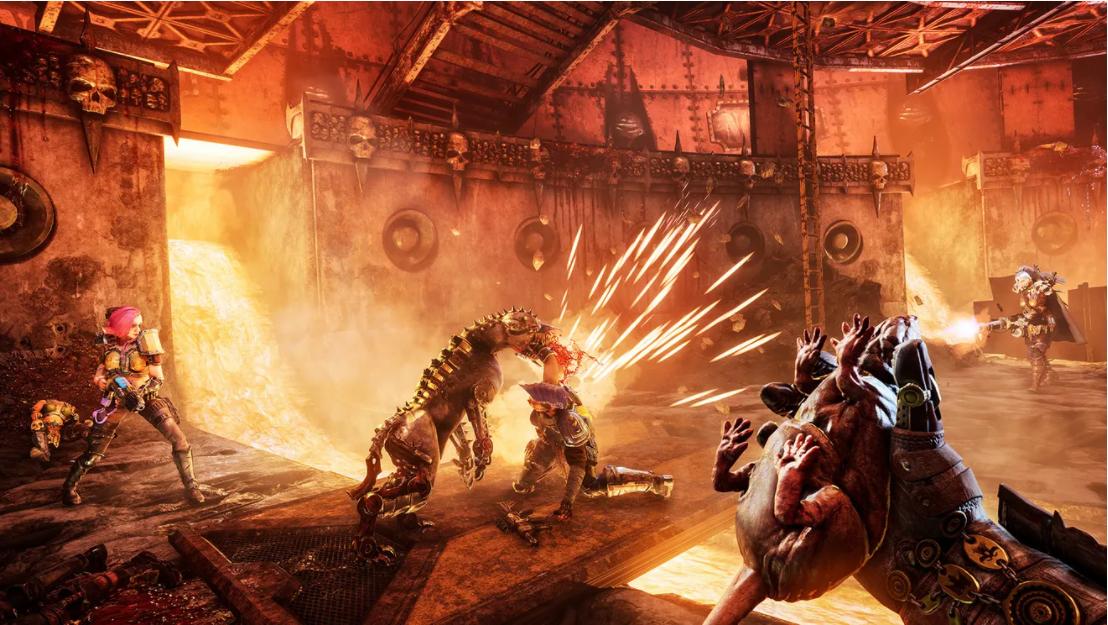



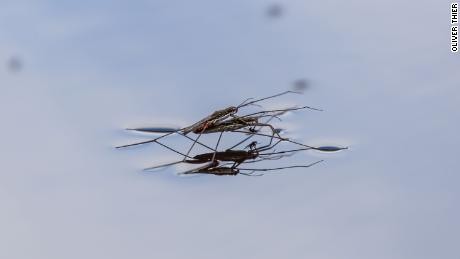
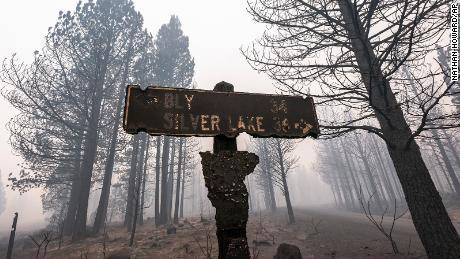


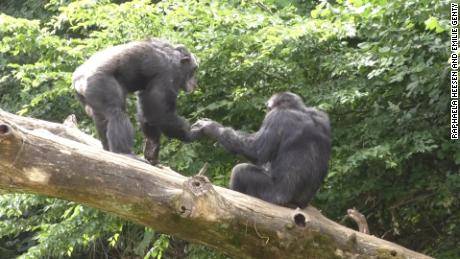


Write a Comment